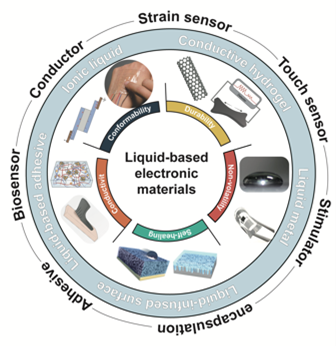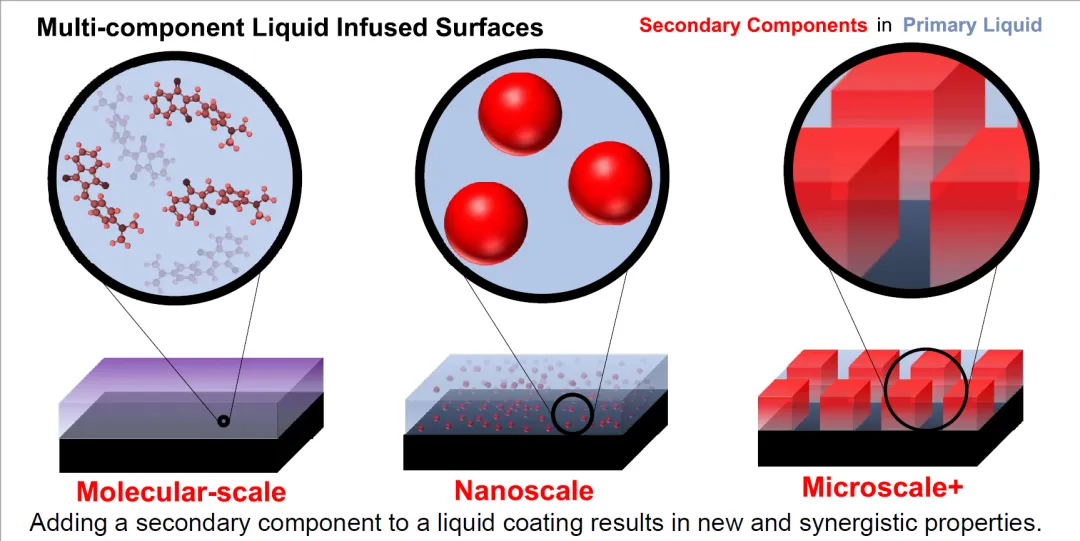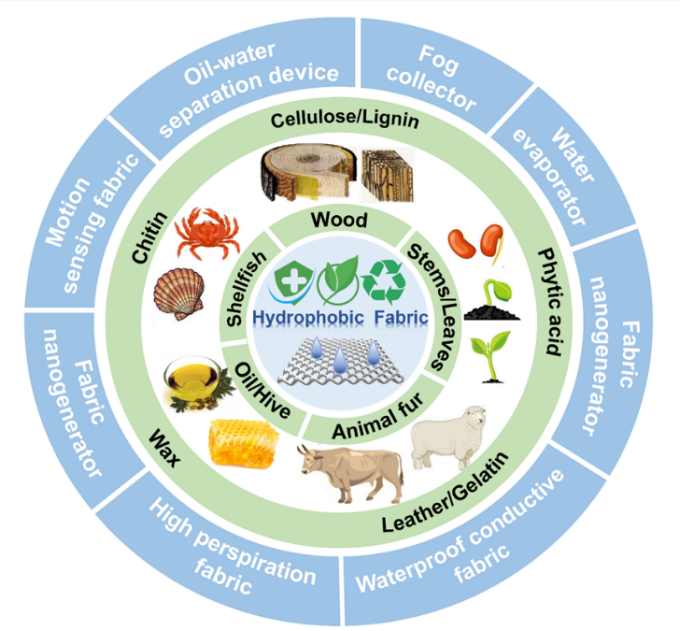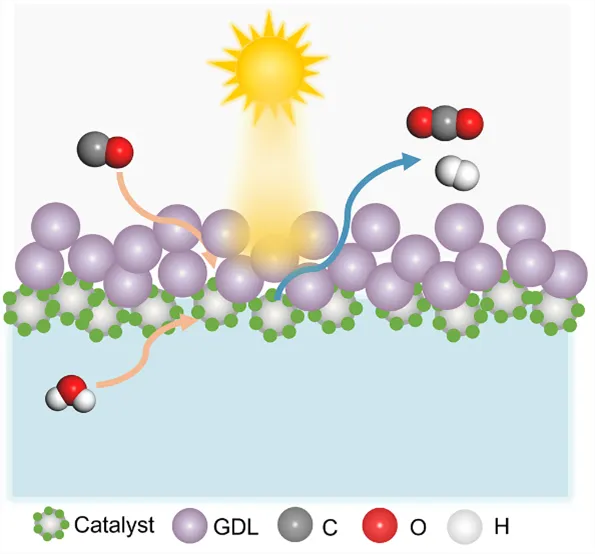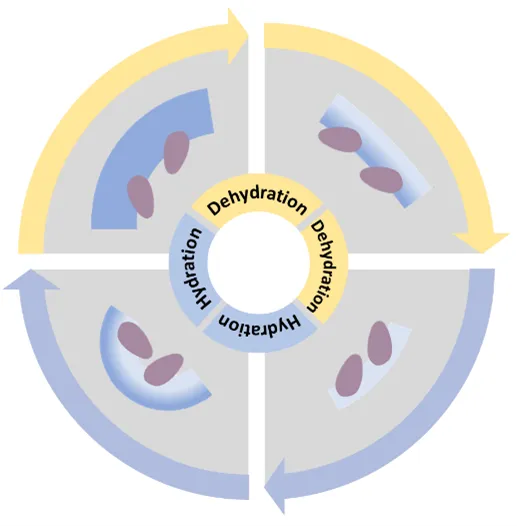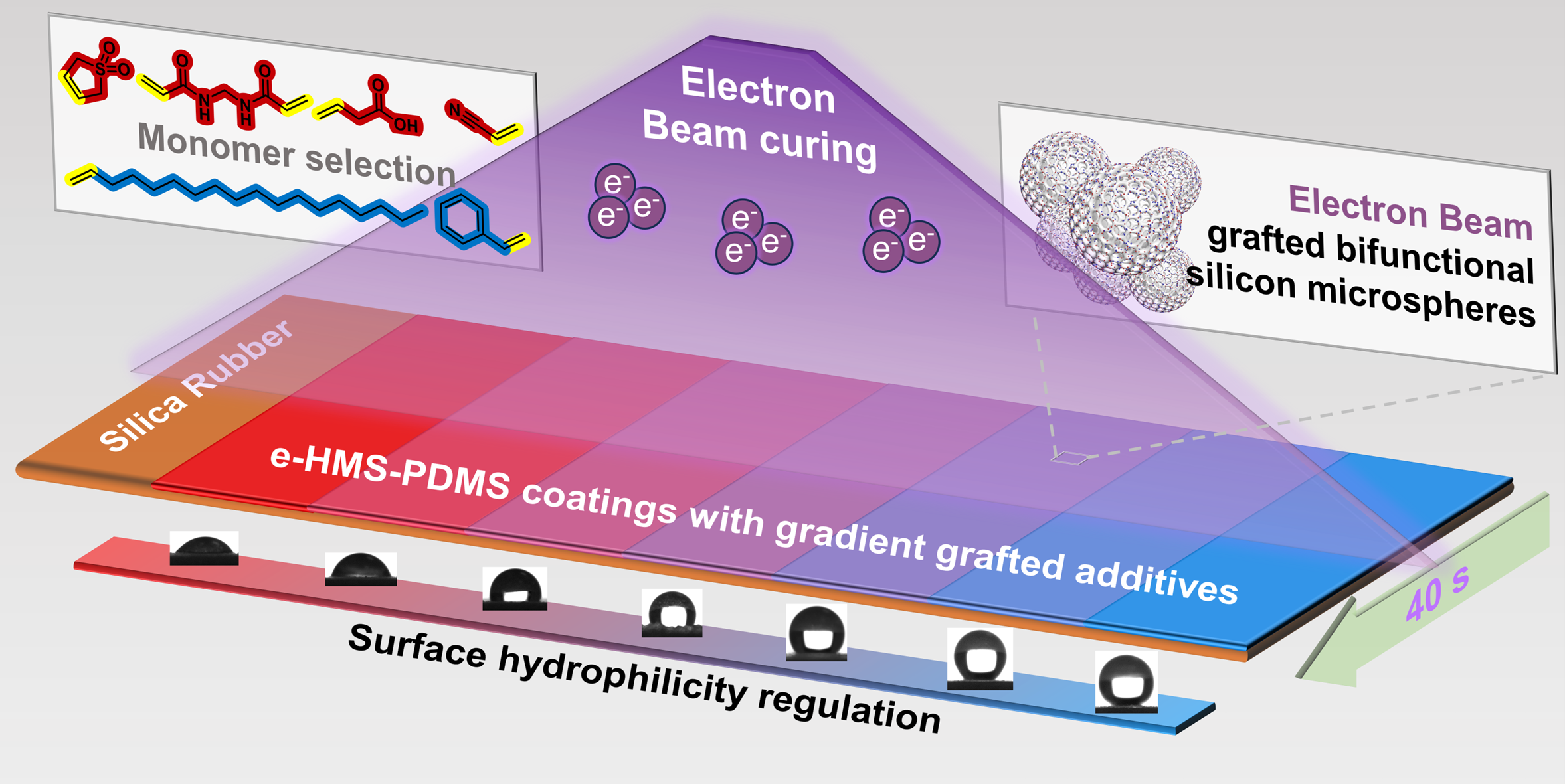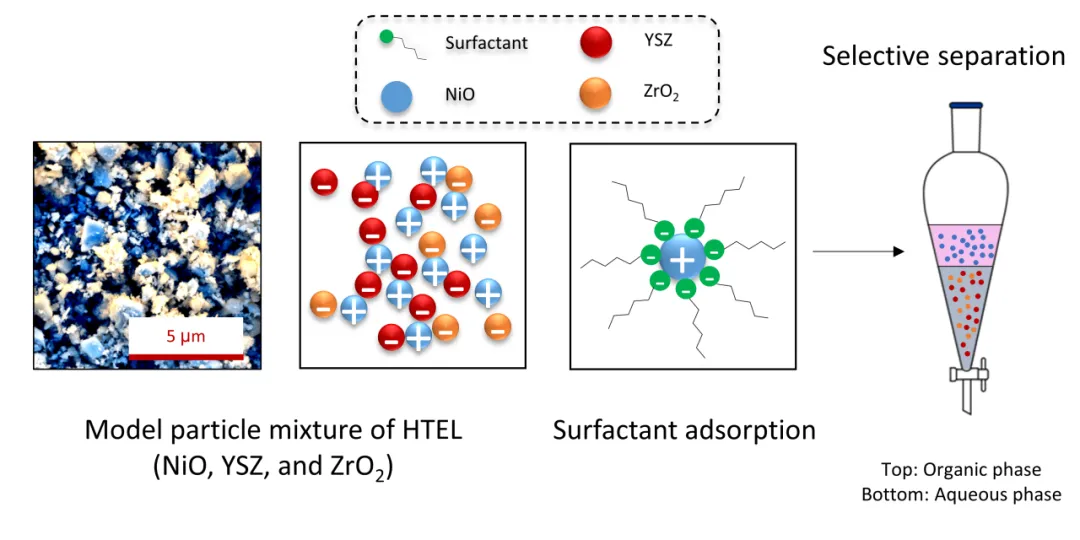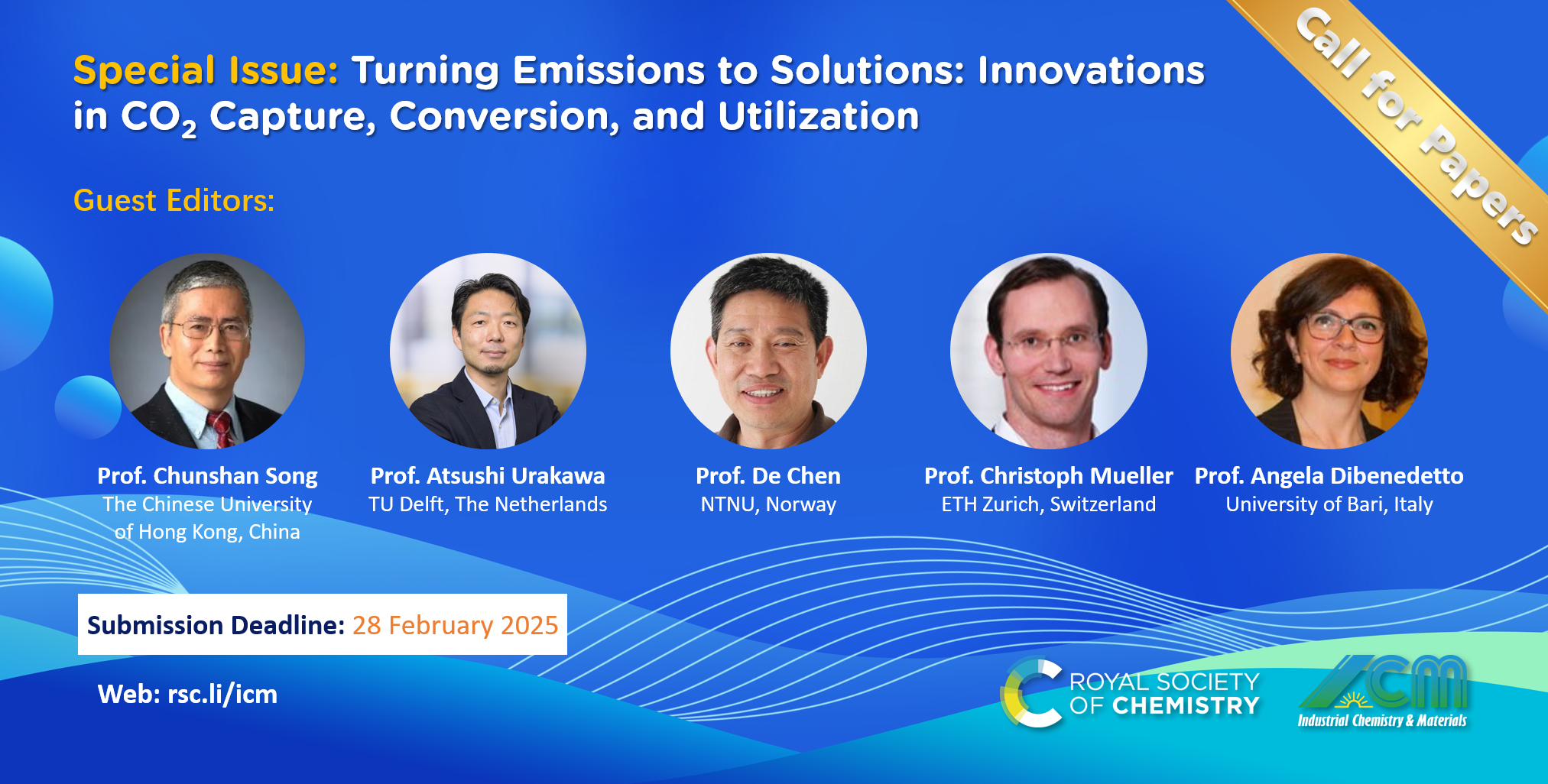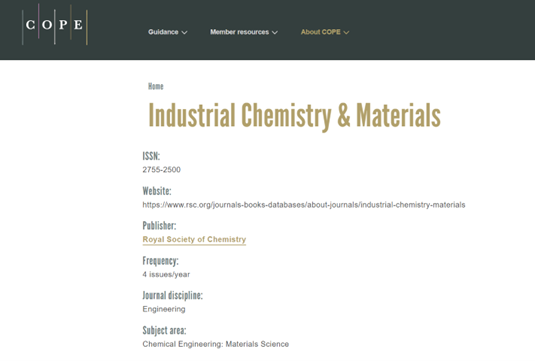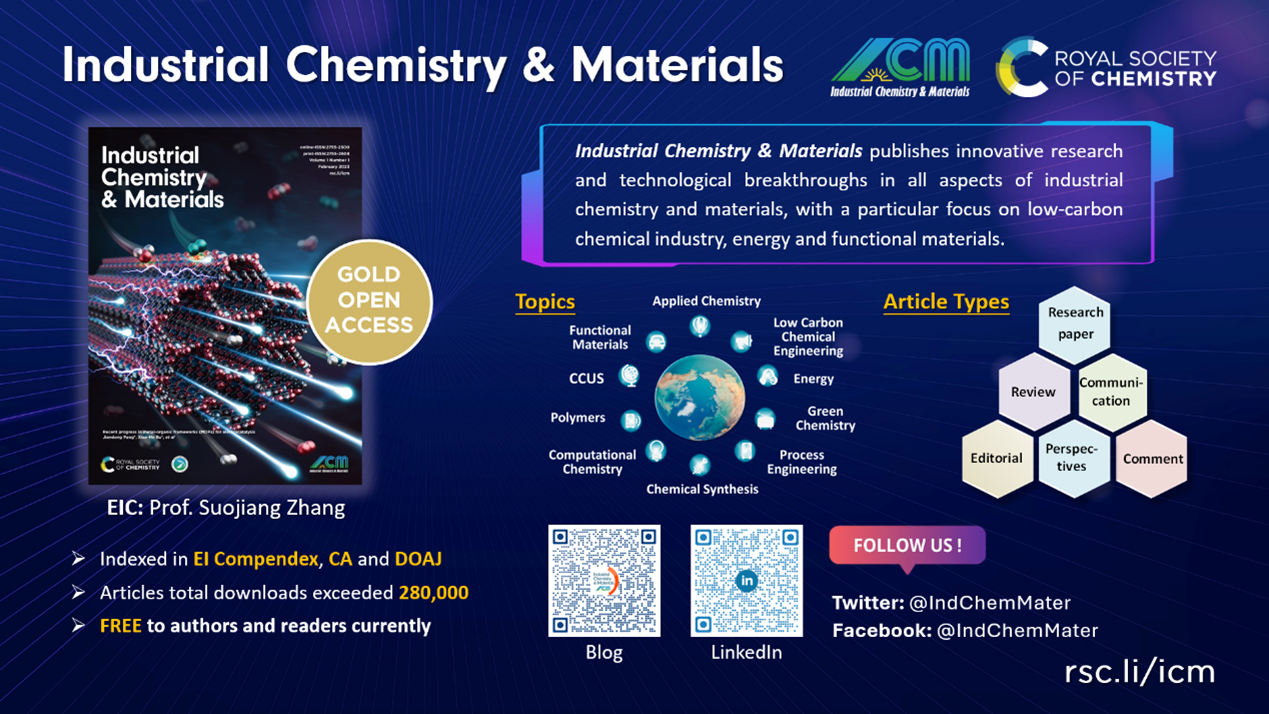Liquid-based materials offer a way to overcome the limitations of traditional solid materials by exploiting the unique properties of liquids, such as dynamic responsiveness, soft interfaces, and structural flexibility.

Industrial Chemistry & Materials is pleased to announce our Special Issue “Liquid-based Materials: Novel Concepts from Fundamentals to Applications”, which gathers expert insights on liquid gating systems, liquid-based electronic materials, multi-component liquid-infused systems, and the regulation of hydrophilicity and hydrophobicit. Join us in advancing the frontier of liquid-based materials, from foundational concepts to breakthrough applications!
Read our Guest Editors’ summary and insights in the accompanying editorial.
Browse the collection bellow:
 Contact us: icm@rsc.org
Contact us: icm@rsc.org
Visit our website: rsc.li/icm
Find all the latest developments, research and news from across our portfolio on X (Twitter), LinkedIn, and sign-up to our e-alerts.


